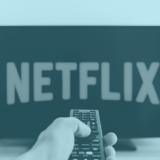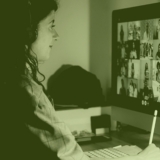Millennials and Gen Z have been hard-hit by the one-two punch of the 2008 and 2020 financial crises. That experience has radically shaped their approach to ...
Welcome to the second episode of Bio Eats World, a brand new podcast all about how biology is technology. Bio is breaking out of the lab and clinic and into ...
Welcome to the first episode of Bio Eats World, a brand new podcast all about how biology is technology. Bio is breaking out of the lab and clinic and into our ...
With the U.S. tech partnership for TikTok being finalized, what happens if source code is excluded (and more specifically, the For You Page algorithm), given ...
Today’s episode, part two in our two-part series on the Creator Economy, focuses on the new potential revenue streams and fan-engagement models opened up by ...
This episode, part one in a two-part series on the Creator Economy, explores the process and economics behind creating an independent newsletter. In this ...
Since Netflix started in the late 90s as a DVD-by-mail rental service competing with Blockbuster, it has completely reinvented itself… twice – first, ...
“I’m in a movie, but it’s the wrong movie.” For better or for worse, we tell the story of entrepreneurs as one of the mythical ...
Monopoly, oligopoly, cartel. All three of those words can describe the (not so) modern education system today, given the cost structures, economics, and ...
This episode examines the potential for misuse and fraud among those applying for the Paycheck Protection Program (PPP)—and how fintech and software provide ...
Okay, so we know community is important — whether for developer relations for your product or other types of communities — but how do we measure ...
There is no spoon. Or rather, “There is no such thing as ‘data’, there’s just frozen models”, argues Peter Wang, the co-founder and CEO of Anaconda — who also ...
This episode is all about education and technology, a topic that’s especially top of mind this week as students in much of the country return to ...
WHEN are we going to have a COVID-19 vaccine, and how the heck are we going from (what’s been traditionally been up to) 12 years or so of vaccine development ...
In this episode, we continue our community series with a recent discussion that applies to many kinds of community building. Today’s topic: How do you create a ...
CAR T therapy is a groundbreaking medicine that uses engineered T cells to attack cancer. But CAR T cells (that is, chimeric antigen receptor T cells) can be ...
We’re living in an unprecedented era of online collaboration, coordination, and creation. All kinds of people are coming together — whether in an ...
In this episode — cross posted from our 16 Minutes show feed — we cover all the buzz around GPT-3, the pre-trained machine learning model from ...
Many don’t realize we even need to think about the possibility of security hacks when it comes to things like pacemakers, insulin pumps, and more. But when ...
Ever since the discovery of antibiotics, microbiologists have worried about and studied how bacteria acquire resistance to these drugs. Adding to the ...
- « Previous Page
- 1
- …
- 20
- 21
- 22
- 23
- 24
- …
- 30
- Next Page »
















